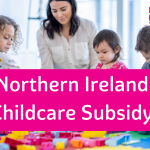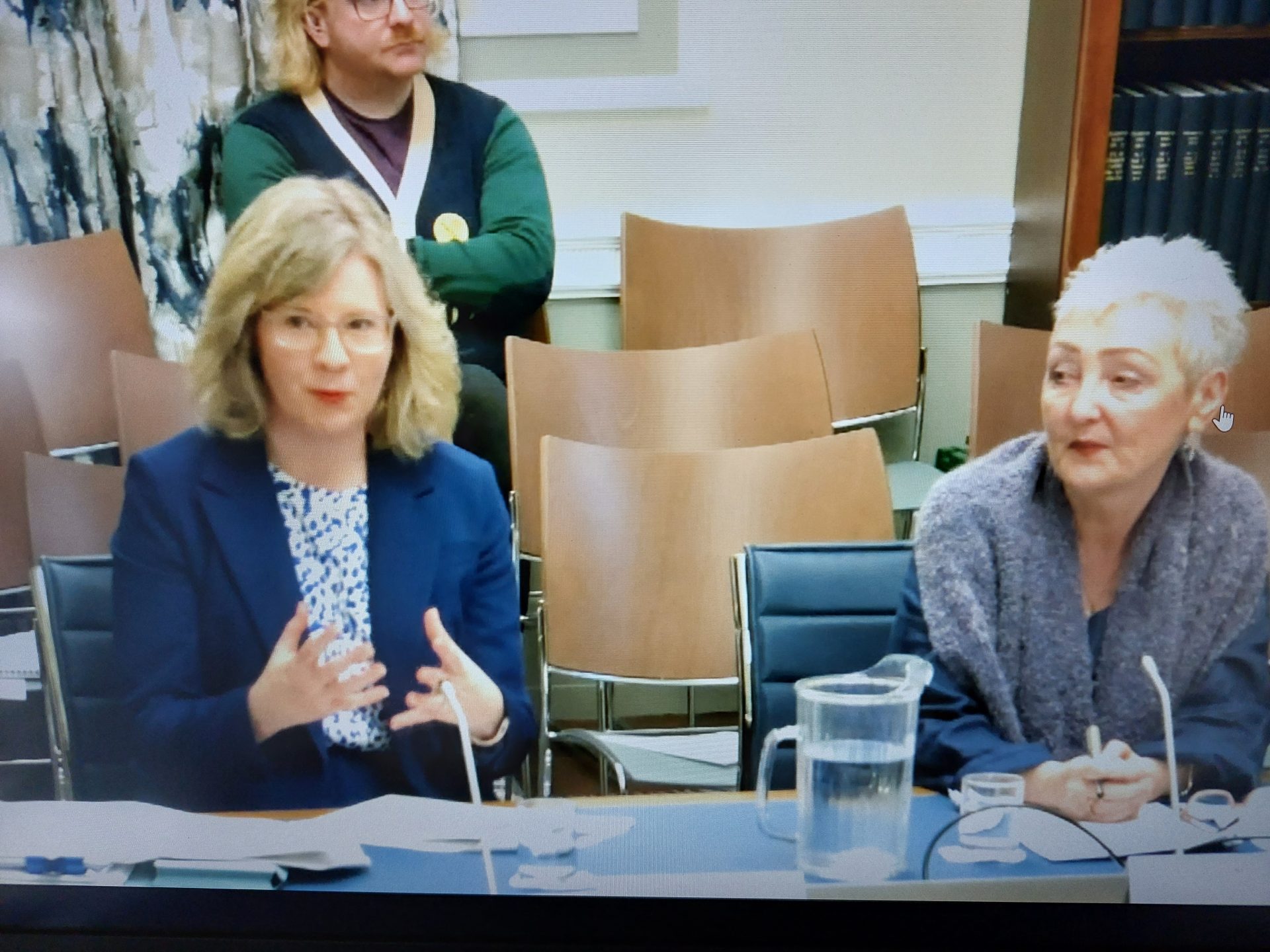Learning from the experience of 30 hours free childcare in England
Since the restoration of the Northern Ireland Executive, there has been a welcome focus on childcare, with new Ministers and MLAs from all parties pledging their support to tackling the childcare crisis facing families and the childcare sector . We welcome this commitment and are clear that new Ministers need to deliver on two things:
- Short-term: Urgent financial support to offset impending childcare fee increases as a result of the increase to the National Minimum Wage from April.
- Long-term: An ambitious Early Learning and Childcare Strategy, incorporating a fully funded affordability scheme, that delivers transformational investment in quality, accessible and affordable early learning and childcare.
With investment in childcare now recognised as a priority, attention must turn to ensuring that any investment is designed to deliver the greatest benefits for children, parents, providers and our wider economy.
There is significant learning here from the roll out of schemes elsewhere in the UK and in Ireland. One scheme that has received a lot of attention is the 30 hours free childcare offer in England. Originally launched in 2017 for eligible working families with children aged 3-4, this offer is now being extended in phases. The Government’s aim is that, from September 2025, eligible working families will be able to access the 30 hours free childcare scheme for children from the age of 9 months up to 4 years.
On paper, this sounds hugely appealing for working parents, helping to reduce the soaring cost of childcare for some families. However, there are major issues with the scheme that have caused real problems for the sector in England, resulting in rising costs for many parents and increasing numbers of providers either unable to offer the scheme or closing – making it even more difficult for families to access the childcare they need. These issues are only set to worsen with the planned extension of the scheme, while the IT system through which families sign up has been characterised by flaws resulting in some parents not accessing the code they need to apply for the government-funded hours from when the scheme extends in April.
These issues must be taken on board to develop a bespoke scheme for Northern Ireland, which Ministers have indicated is their intention. We’ve summarised them below.
Issues with the 30 hours ‘free’ childcare offer in England
The way in which the scheme has been funded and targeted:
- Has put significant financial pressure on childcare providers, pushing costs up for many families and making it harder to find childcare
- Has widened inequalities between disadvantaged children and their peers
- Doesn’t actually deliver 30 hours free childcare across the whole year
- Doesn’t focus on quality of early learning and childcare delivery
- Doesn’t improve pay, terms and conditions for those working in the sector.
Funding shortfall threatens sustainability of providers, pushing costs up for families and risking the availability of childcare
There is clear evidence that funding provided by the UK Government for the delivery of free childcare hours in England does not cover the full costs for childcare providers in offering the scheme. The extent of underfunding was revealed through an Early Years Alliance Freedom of Information investigation, the outcome of which was published in June 2021. Annual uplifts have been insufficient to keep up with the rising costs of delivering childcare.
As a result, there is a shortfall in funding that providers must cover. The consequence is that they have had to increase their costs for families accessing childcare outside of the funded hours, such as for younger children or for any additional hours required. This has made it even more difficult for many parents, particularly mothers, to afford the childcare they need to return to work following the birth of a child.
A significant proportion of families in England accessing ‘free’ provision have seen an increase in charges for extras such as lunches, nappies and outings. This was flagged in a House of Commons Treasury Committee Childcare Inquiry which identified unintended consequences of the 30 hours free childcare scheme including:
- Additional charges for food and activities
- A requirement for parents to also be paying for additional hours
- Restricting access to ‘free’ hours to particular times of day, or days of the week.
Some settings have been forced to close, particularly those in more disadvantaged areas, or have chosen not to offer the scheme because they simply can’t afford to do so, making it even harder for parents to find a childcare place.
This has been exacerbated by the extension of the scheme. As more hours will be funded by the Government, the impact of the funding shortfall will be even harder for providers to mitigate. Following the announcement of the planned extension of the scheme, research from the Early Years Alliance in England in July 2023 showed that many parents will struggle to access ‘free childcare’ places as providers warned of limited capacity to deliver them. Many providers were intending to limit the number of funded places they offered with some opting out of the scheme entirely.
This is reinforced by a more recent report which found that the majority of early years providers in England expect to struggle to meet the demand of the upcoming extended entitlement offer. 7 in 10 childcare services are already full and will be unable to offer more places. Almost 20% of providers are likely to opt out of offering at least some entitlement offers by September 2025. The research also highlighted the financial challenges facing providers, with 86% of nurseries and pre-schools warning that the upcoming increase in the National Living wage will have a negative impact on their finances. Of those, 81% plan to increase fees to mitigate the impact of cost pressures, while more than half intend to introduce or increase optional charges.
Introducing a similar scheme in Northern Ireland has the potential to significantly destabilise the childcare sector, making an already challenging financial situation even worse for providers. Phasing in the scheme could result in an immediate fee shock for parents who are not eligible, pushing their costs up significantly.
Support needed for all parents, not only those of three and four year olds
The 30 hours free childcare scheme in England was initially targeted at working parents of three and four year olds. The planned extension of this scheme to younger children is welcome recognition that parents typically find it most difficult to afford the childcare they need when seeking to return to work after the birth of a child. However, as set out above, insufficient funding and capacity within the sector is putting delivery at risk in England.
From the offset, support is needed in Northern Ireland for parents with children of all ages, particularly the youngest children when costs tend to be highest, and when access to affordable childcare is the greatest barrier to work.
Phasing in a scheme that starts with an older age group could actually increase costs for younger children, as was seen in England with the initial roll out of 30 hours free childcare for 3-4 year olds, and make it more difficult for parents to return to or progress in work.
Failing children from more disadvantaged families
There is also evidence that the scheme in England is widening the gap between disadvantaged children and their peers, disproportionately benefiting those from higher income families.
To be eligible for the full 30 hours entitlement in England, parents must both be working (one parent in a lone parent household) and earning above a minimum threshold. The impact of this is highlighted in research from the Sutton Trust which finds that the poorest children are locked out of benefiting from additional hours of early education and childcare and, as such, are starting school educationally and developmentally behind their peers. This compounds inequalities, and is harming children’s life chances.
It can also impact negatively on parents who are out of work, but seeking to move back into work, and would benefit from being able to access childcare that enables them to attend education, training or participate in volunteering activities.
A joint briefing from Employers For Childcare and the Joseph Rowntree Foundation (JRF), published in January 2024, evidenced the role of quality, affordable and accessible childcare in helping to lift children out of poverty and in tackling disadvantage through:
- Helping families increase their earnings by enabling parents to work, increase their hours and progress in the workplace.
- Improving long-term educational, developmental and employment outcomes for children and countering some of the negative effects of poverty.
- Enabling the early identification of special educational needs and disabilities in children.
A more progressive scheme will achieve the aims of supporting parental employment and developmental opportunities for children without leaving disadvantaged families behind.
You don’t actually get 30 hours every week
The 30 hours offer is based on a school term-time schedule, rather than a working parent’s schedule.
The full entitlement to 30 hours of free childcare per week is only available across 38 weeks of the year and, while it can be annualised across more weeks, this significantly reduces the ‘per week’ entitlement. Access to registered childcare during school holidays can be a real challenge for families, and can increase expense at particular times in the year.
Doesn’t focus on quality of early learning and childcare delivery, nor on supporting the workforce
Increasing financial pressure on providers risks the quality of early learning and care on offer and does nothing to address pay and conditions for the workforce.
Providers will be less able to invest in their settings and will be unable to pay staff at a rate that supports the recruitment and retention of quality people.
Looking towards a bespoke, ambitious solution for Northern Ireland
This does not mean that there is no merit in learning from the 30 hours free childcare model. The model has the capacity to offer choice and flexibility to parents, where it can be delivered through a range of settings, and if properly funded could reduce costs for families.
Through our work with families, many of whom are struggling to afford the childcare they need, we understand the attraction of a ‘free’ childcare offer, similar to that which has been rolled out in other parts of the UK.
However, there is a clear rationale against simply adopting a similar model in Northern Ireland without taking on board learning from its implementation. There is an opportunity instead to develop and target investment and support through a bespoke scheme that is unique to Northern Ireland, while taking on some of the best parts of what is available elsewhere in the UK, Ireland and in other countries.
There is a wealth of learning to be incorporated from experiences elsewhere, and a wide range of options to consider, in consultation with expert stakeholders, including parents, childcare providers, employers and academics.
Proposed funding model
Employers For Childcare has been constructive in developing proposals for a bespoke funding model for the childcare sector in Northern Ireland to better meet the needs of all families, incorporating:
- Universal, free provision of 22.5 hours of early learning and childcare for children in their immediate pre-school year.
- A core-funding subsidy for all registered childcare providers covering a portion of the costs of delivering quality early education and childcare, enabling them to reduce the fees they charge parents. The subsidy should be increased over time, as public finances allow, further reducing fees for parents.
- A strengthening of the support aimed specifically at tackling disadvantage, including targeted subsidies for providers and expansion of Sure Start services.
Read more about this here.
Timeline needed for progress on new Early Learning and Childcare Strategy
We welcome the progress that was made over the past two years by the Department of Education in developing ‘costed options’ for a new Strategy, and in engaging with stakeholders across the sector. However, now that the Executive is back in place, we need to see increased momentum on this and further engagement with the childcare sector to ensure that the options which are being assessed meet the needs of families and childcare providers.






